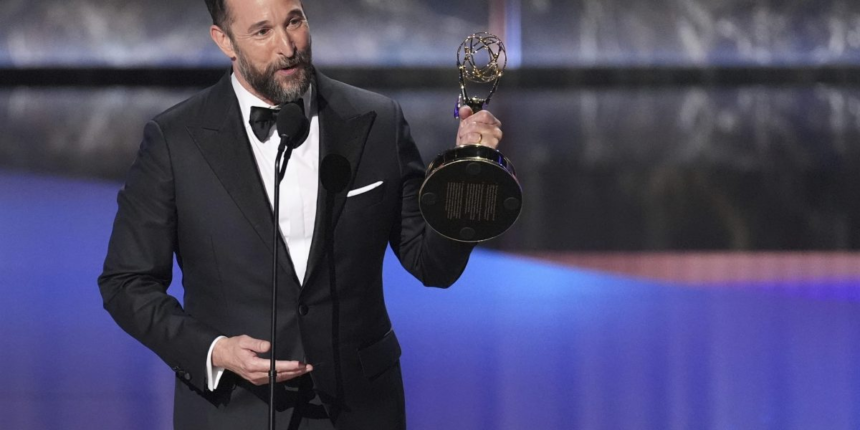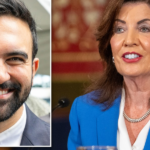“What a dream this has been,” Wyle said. “Oh my goodness.”
Katherine LaNasa, whose nurse is perhaps the show’s most beloved character, was a surprise winner of best supporting actress in a drama over three women of “The White Lotus” on a night when every acting Emmy but one went to a first-time victor.
The show’s losses kept the evening from being a total triumph for Apple TV+, which has still never won a best drama prize, though it has now won best comedy three times between “The Studio” and “Ted Lasso.”
Lower’s win was a surprise in a category where Kathy Bates was considered a heavy favorite, for “Matlock.”
Cristin Milioti won best actress in a limited series for “The Penguin.”
Jean Smart bucked the rookie trend, winning her fourth Emmy for best actress in a comedy for “Hacks” and her seventh Emmy overall. At 73, she extended her record for oldest winner in the category.
Cooper said in his acceptance that he was “nothing three years ago.”
“It’s just so surreal,” Cooper said. “Honestly, when I started these drama classes a couple years back, I didn’t expect to be even in the United States, never mind here.”
Best supporting actress went to Erin Doherty, who played a therapist opposite Cooper in a riveting episode that like all four “Adolescence” episodes was filmed in a single shot.
“The Studio” came into the evening having won nine Emmys already during last weekend’s Creative Arts ceremony. On Sunday night, it added four more, which all went to Rogen. Along with the comedy series award, he won best directing with his co-creator and longtime collaborator Evan Goldberg, and best writing with Goldberg and others.
The show brought blockbuster buzz for its first season from the start and the Emmys ate it up, whether because of Hollywood’s love for stories about itself (with A-list guest stars) or the television industry’s love for stories that mock the self-importance of movie people.
Backstage, Rogen clumsily tried to hold up all four Emmys at once. Asked whether the night will be fodder for season two, he said no.
“This is, like, far too good a thing to have happen on our show,” he said. “Our show is generally based on stress and disappointment and right now, we’re all very happy.”
Smart’s castmate and constant scene partner Hannah Einbinder, who had also been nominated for all four seasons of “Hacks” but unlike Smart had never won, took best supporting actress in a comedy.
She said she had become committed to a long-term bit where “it was cooler to lose.”
“But this is cool too!” she shouted, then ended her speech by cursing the U.S. Immigration and Customs Enforcement agency and saying “Free Palestine!” Political sentiments from the stage were otherwise rare.
In perhaps the night’s biggest upset, Jeff Hiller won best supporting actor in a comedy for “Somebody Somewhere,” over Ike Barinholtz of “The Studio” and others.
“Sometimes you only truly know how much you love something when you get a sense that you might be losing it,” Colbert said in his acceptance.
Many perceived the end of the show as punishment of Colbert and placation of President Donald Trump after Colbert was harshly critical of a legal settlement between the president and Paramount, which needed administration approval for a sale to Skydance Media. Executives called the decision strictly financial.
Colbert showed no bitterness to CBS, thanking the network, which telecast the Emmys and aired a commercial celebrating his win, for letting him be part of the late-night tradition.
The show opened with a sketch where “Saturday Night Live” stars Mikey Day, Bowen Yang and James Austin Johnson joined Bargatze, who played television inventor Philo T. Farnsworth opining on what the future of TV will be like.
Bargatze-as-Farnsworth mentions that there will one day be a Black Entertainment Television. When asked if there will be a network for white people, he replied, “Why, CBS of course.”









